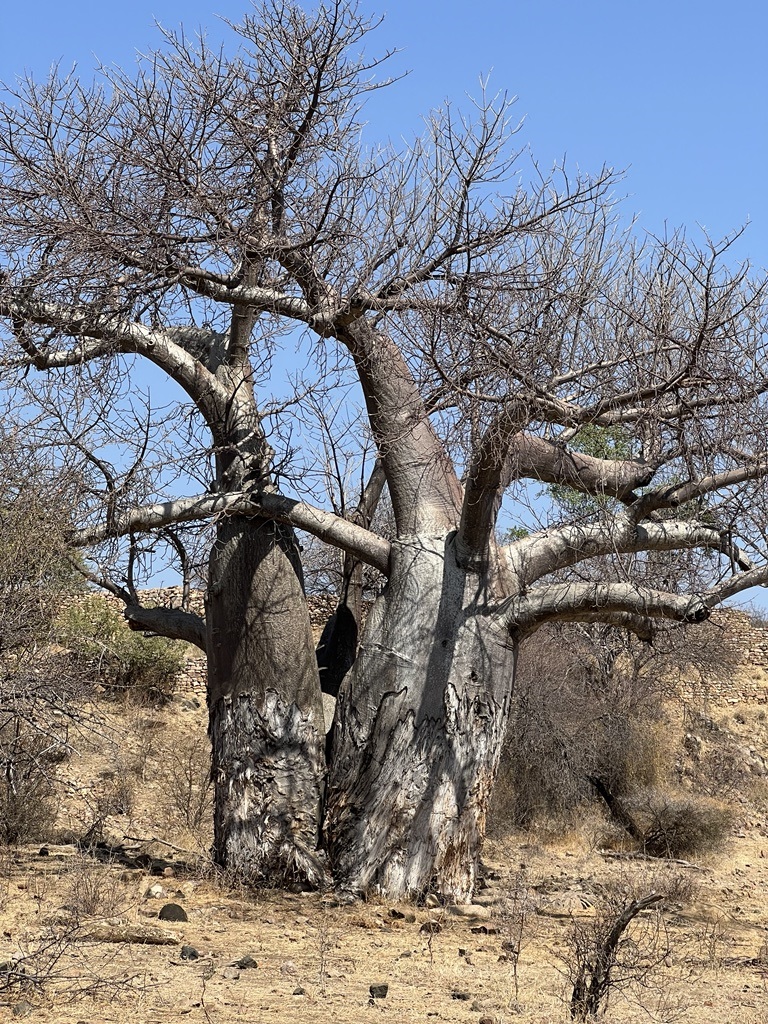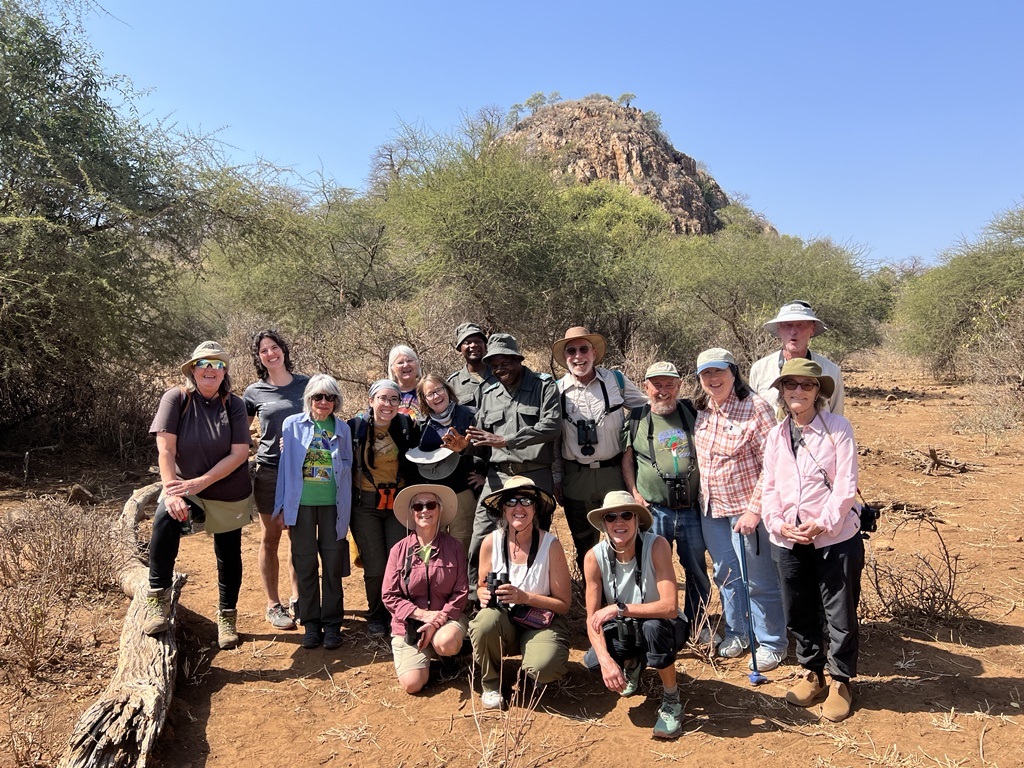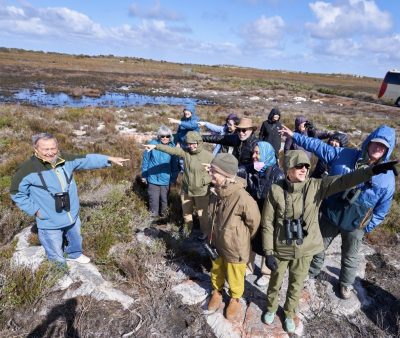
I ended up in South Africa on a whim, and while this may make me seem like an unserious person, in truth, I am not. But having toured OTS in La Selva almost twenty years before, I didn’t hesitate to bet my first post-retirement adventure on the memory of that visit, the near-certain probability of like-minded travelers, and the vaguely virtuous prospect of supporting research over the travel industry, despite the egregiousness of the impact on my carbon footprint.
Mainly, though, I trusted OTS.
Their email promised three things: the experience of a lifetime, good food, safe travel. What it didn’t mention was how completely we’d be made to feel at home in a thriving and generous community of scientists who would attend so warmly to our interests and our needs that it seemed completely natural to rise before dawn and drive out in frigid cold to watch giraffes grazing at the side of the road.
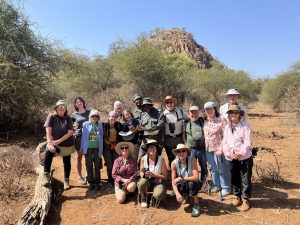
To wit, we made long lists of sightings: two lions prowling and one lolling; nyalas, zebras, and elephants galore; a deceptively cuddly-looking honey badger; massive-trunked baobabs, also known as upside-down trees; and by one count, a hundred and thirty-two species of bird, beginning (alphabetically) with African darter and ending with yellow-fronted canary. We stood for the obligatory group photos: Tropic of Capricorn, Crook’s Corner, the ancient ruins of Thulamela, Cape of Good Hope. For the adventurous eaters among us, biltongs of bushbuck and kudu and Mopani worm stews. And in Cape Town’s gutted District 6, a reckoning with history so brutal and recent it guts you back.
Along the way, our big-hearted guides gave us lessons, both subtle and direct, in geology, geography, botany, biology, ecology, fire science, history, race politics in South Africa, and the future of the Kruger, to name only a few. One shared stories of his work with leopards; another, of his mapping of invasive fishes; another, of love kindled over elephant dung. I use the word “shared” because while information was provided in formal presentations that were more like fireside chats, it also came in offhand remarks, studied answers to our questions, and a wealth of suggestions for how to learn more to deepen the knowledge being offered to us.
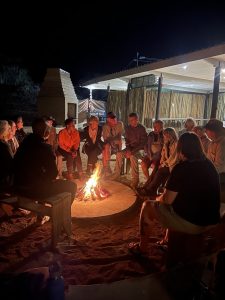
And there is also this:
The crew who cooked our (yes, delicious) meals was a small entrepreneurial group OTS helped foster by funding a vehicle to start the now successful business.
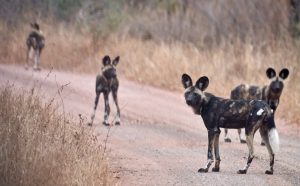
While most nights our ensuite accommodations were private and spacious—an unexpected luxury I, as a solo traveler, especially appreciated—on two occasions it was my good fortune to room with the sole octogenarian among us, an eighty-something woman with a bad leg who never missed an opportunity to participate and who brought me to the verge of tears after one extremely long day with the suggestion that we join a game drive in the morning, the first and only morning we were invited to sleep in. But of course, if she was going, I was too. And that was when the four of us who managed to get up were treated with a pack of wild dogs, seven creatures of only 200 remaining in the park, a thrill I owe not just to my intrepid roommate, but also to the good people of OTS who made everything seem possible if we just kept on saying yes.
All my life I have gone into the woods to plant my feet. I do this by walking and in search of solitude. In Africa, I read somewhere, the concept of wilderness is defined less by the absence of people than by the presence of animals. No one I asked would confirm this, but now that I’ve experienced the wilderness from the confines of a game drive vehicle so close to other living creatures as take in our utter insignificance to them, I know better what it means.
“Limbs in the vehicle,” our guide cried out when lions were close, and the natural world shifted around me. It’s not safe to walk in the Kruger and you’re almost never alone, but you are not less in the wild for your caution and community. In the crux of such a paradox, it’s impossible not to do as Hedigger says and let the tree stand where it stands. And if we are lucky, this lets us stand too.
